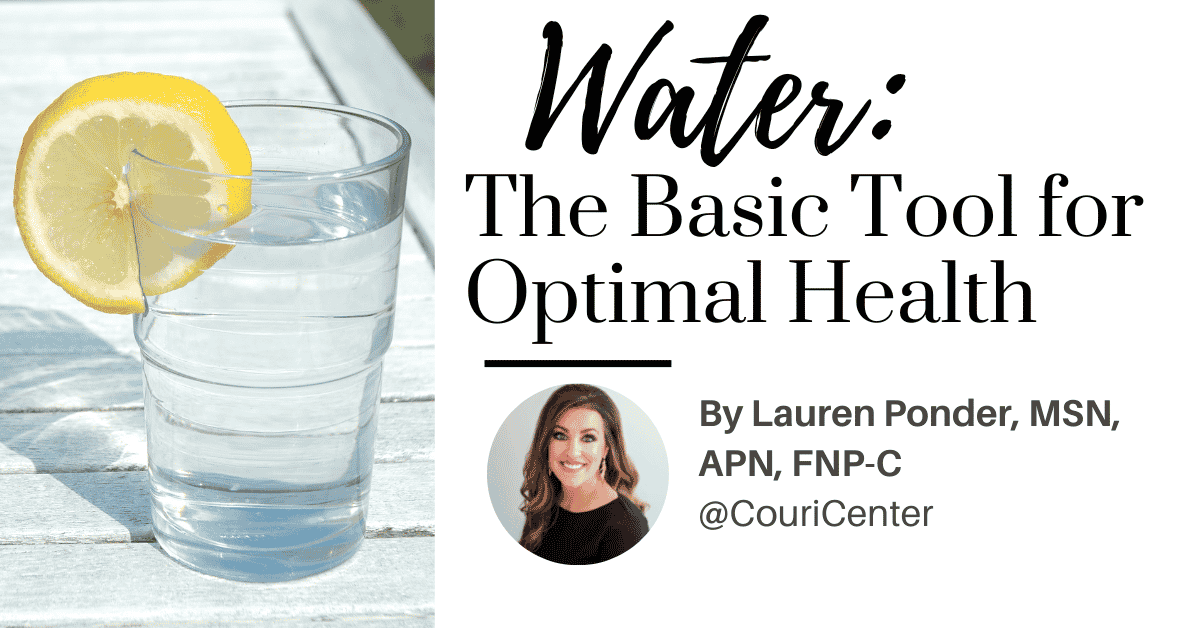
Water is the most simple yet essential substance found in our bodies. It makes up 50-70% of an adult’s body weight and is necessary for every biological function. From delivering nutrients to our cells to temperature regulation, flushing out toxins, and so much more, our bodies depend on it for optimal health. Some of the overlooked benefits of water include: Aiding in proper digestion, ensuring adequate cognitive function, and lowering your risk of cardiovascular disease-related mortality.
Water helps several different gastrointestinal (GI) system functions and is a natural appetite suppressant. Research shows that drinking a glass of water before meals can help curb your appetite, helping you to eat less and leave you feeling more satisfied. Water helps reduce bloating by carrying the digestive enzymes needed to adequately break down food making it easier for our gut to absorb vital nutrients while flushing away the unwanted toxins. Good hydration also increases circulation to the intestines, leading to improved lubrication and GI transit preventing constipation (Popkin et al., 2010).
Water and hydration status can also impact an individual’s cognitive function and mood. Studies have shown that cognitive impairment can occur when someone loses 2% or more of their total body water. Problems with poor concentration, increased reaction time, short-term memory problems, moodiness, and anxiety were noted. Research by Riebl and Davy (2013) showed that as an individual’s hydration status decreased, the degree of cognitive impairment and mood dysregulation increased. One of the mechanisms by which dehydration causes these changes is due to the decrease in circulating blood volume, thus causing decreased oxygen flow to the brain. Another proposed mechanism for the cognitive impairments noted is an increase in levels of the hormone cortisol, which relates to the stress response caused by dehydration (Masento et al., 2014).
Water has a significant impact on our cardiovascular system as well. In a systematic review and meta-analysis performed by Majdi et al. (2021), they sought to understand the link between total water consumption, which is water from both foods and beverages, and the risk of mortality from all causes and cardiovascular disease (CVD). While total water intake was not associated with all causes of mortality, “a significant inverse association was found between total water intake and risk of CVD mortality.” Thus, high total water consumption was associated with a lower risk of death from cardiovascular disease. Furthermore, they concluded that “each additional cup of total water intake per day was associated with a 3% lower risk of death from CVD.” These findings may be explained by the fact that good hydration reduces the risk of hypertension, coagulation dysfunction, and inflammation throughout the body. All of which can be caused by dehydration.
While recommended daily water intake varies slightly by age, gender, and health status, consuming 2.5- 3.5L daily should be adequate for most people (Mayo Clinic, 2022). When making lifestyle changes, increasing your water intake should be at the top of everyone’s list, no matter your goals. This simple yet vital change will ensure your body can function to the best of its ability. Drinking 16 oz of room temperature water first thing in the morning helps flush toxins and gives you a boost in energy to help jump-start your day!
If you’re looking to incorporate more integrative health practices into your lifestyle, we’re here to help! New patients are welcome.
Lauren Ponder, MSN, APN, FNP-C
References:
Riebl, S. K., & Davy, B. M. (2013). The Hydration Equation: Update on Water
Majdi, M., Hosseini, F., Naghshi, S., Djafarian, K., & Shab‐Bidar, S. (2021).
